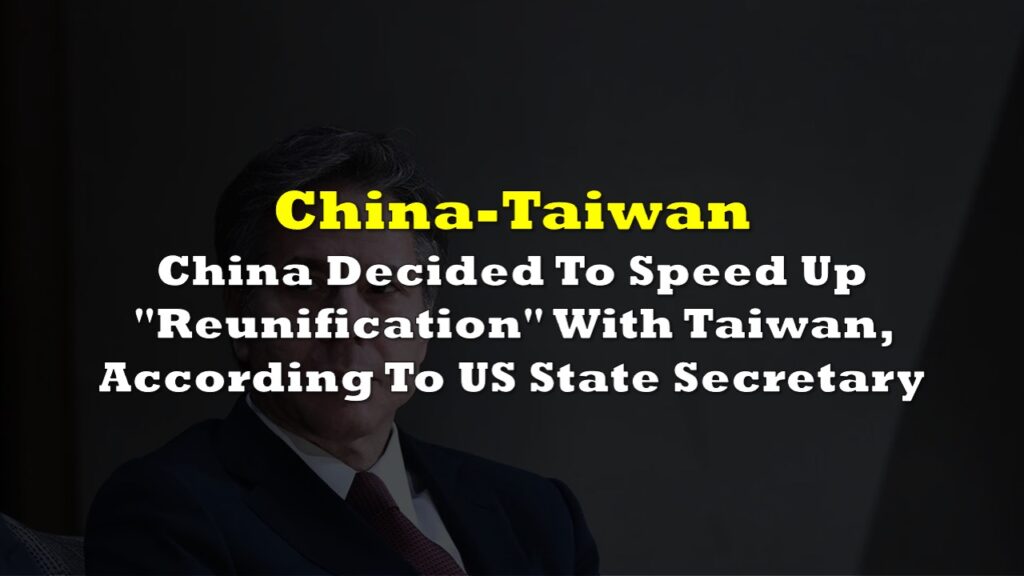A significant disruption to Taiwan’s telecommunications infrastructure occurred after two undersea cables connecting the island nation to the outlying island of Matsu were severed. The incidents, occurring on January 15 and the early hours of January 22, have raised concerns about the security and resilience of Taiwan’s critical communication networks.
William Yang, a local journalist, noted on social media that “the exact cause is unknown.”
Breaking: Two undersea cables connecting #Taiwan and the outlying island Matsu have been severed since this morning. The exact cause is unknown. https://t.co/e7x6ftCtvd
— William Yang (@WilliamYang120) January 22, 2025
Subsequent confirmation came from Chunghwa Telecom, Taiwan’s largest telecommunications company. In an official statement, the company reported that a third Taiwan-Matsu undersea cable experienced a disruption on January 15 at 1:36 PM, followed by the second cable on January 22 at 5:34 AM.
“Communications have been rerouted to microwave circuits,” Chunghwa Telecom announced, emphasizing that service interruptions remain minimal.
The Ministry of Digital Affairs assured the public that communication services are not significantly affected due to the activation of backup systems.
“We have already initiated microwave and satellite backups, ensuring that communication remains uninterrupted,” stated Deputy Digital Minister Chiueh Herming during a briefing. Chiueh added, “No suspicious ships were detected when the cables went offline, and natural deterioration is the likely cause.”
However, Chiueh also noted a concerning trend: “We have observed an increase in cases of ships damaging Taiwan’s sea cables in recent years. So far in 2025, Taiwan has reported four cases of malfunctions in sea cables, compared to three in both 2024 and 2023.”
The ministry also highlighted that no maritime obstructions, such as passing ships, were identified in the affected areas, suggesting that the disruptions might be accidental.
Chunghwa Telecom’s technical team said that they are actively addressing the cable disruptions. “Our technicians are on-site to repair the severed cables. We are committed to restoring full service as swiftly as possible,” a spokesperson for the company added.
Despite the official attribution to natural deterioration, authorities remain vigilant. Herming acknowledged the possibility of intentional damage, stating, “While natural deterioration is the most probable cause, we cannot rule out deliberate interference given the rising number of incidents involving undersea cables.”
This incident echoes previous events where undersea cables have been deliberately targeted, highlighting the geopolitical vulnerabilities of critical communication infrastructure. Notably, in December 2024, Finnish authorities intercepted a tanker suspected of being part of Russia’s “shadow fleet” after undersea cables in the Baltic Sea were damaged. Similarly, in November 2024, a Chinese vessel was implicated in the deliberate cutting of data cables in the Baltic, raising alarms about potential state-sponsored sabotage.
Disruptions to undersea cables have been a particularly alarming issue for Taiwan, given its ongoing concerns about “grey zone” Chinese activities around the island. These activities, designed to pressure Taiwan without direct confrontation, include balloon overflights and sand dredging. Taiwan has repeatedly accused Chinese-linked ships of tampering with its infrastructure. In 2023, two undersea cables connecting Matsu were cut, disconnecting the internet. Taiwan authorities suspected Chinese vessels but found no evidence of direct involvement by Beijing, a claim China has denied.
In light of these events, Taiwan has pledged to enhance its maritime security. “We will dispatch our navy if needed to assist the coast guard in responding to any suspicious activity near our undersea communication cables,” stated Herming.
In response to the increasing threats, Taiwan has been proactive in boosting its communication resilience. This includes initiatives such as a trial program to use low-Earth orbit satellites for remote areas, including Matsu. These measures aim to provide alternative communication pathways and reduce reliance on vulnerable undersea cables.
Chunghwa Telecom is also investing in advanced monitoring systems to detect and prevent potential sabotage. “Our commitment to ensuring uninterrupted communication services drives us to continuously improve our infrastructure’s security and resilience,” said a company representative.
Information for this story was found via CNA and the sources and companies mentioned. The author has no securities or affiliations related to the organizations discussed. Not a recommendation to buy or sell. Always do additional research and consult a professional before purchasing a security. The author holds no licenses.









